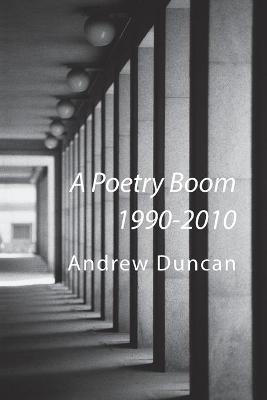The figures we have tell that the number of new books of poetry published each year nearly doubled between 1976 and 1993 and then nearly doubled again by 2000, then staying at this level. In the years 1999-2001 roughly as many books of poetry were published as in the whole of the 1970s. This is a poetry boom. We seem to have a situation where there are 100,000 Eng Lit graduates and 10,000 write a book of poems and succeed in getting it published. This is the outcome of large-scale benign processes. You aren't going to take to the streets and chant Less choice. Less access. Now! A knock-on is that I can't survey the period; all I can do is make notes on the regions I've been to. We're on the beach and the marks in the sand get wiped away everynight. Maybe 12,000 people have published at least one book of poetry. (Maybe it's only 10,000 - oh, that's so much easier. Am I an expert on all ten thousand? What do you think? "'I love you all' he lied and left the room.") People like what poetry has to offer. It is more plausible to describe the things people like than to describe some other cultural system which would be more free of flaws.Not all poems work.
However much you dislike theory, the sound of an emotional-symbolic structure slipping, snapping its pegs, teetering, and collapsing into cultural rubble is all-pervasive: the sound of Now. We have to listen very closely to that sound. I have included a number of chapters on critique, the thing poets dislike most. Some poets think that equity means that whatever I say is true. It seems to support the statement, whatever other people say about me is true, but in fact the rule changes at that point. The idea of softening the boundary between the self and the world does not abolish the outside world. It may be that the gift of the poet is to internalise parts of the outside world, to soften the boundary between the self and the world. The critic is trying to bring the processes of the self outside, into the light where they can be objectively examined. That is the reverse process, pretty much. At present the statement, 'justice means Me getting exactly what I want' seems to be socially acceptable. I want to reform this to say that 'people who actually wrote and finished numerous poems of high quality and who didn't get good reviews, circulation, etc. are examples of Injustice'.
Prose has to be founded on equity.
- ISBN10 1848614233
- ISBN13 9781848614239
- Publish Date 13 November 2015
- Publish Status Active
- Publish Country GB
- Imprint Shearsman Books
- Format Paperback
- Pages 330
- Language English
